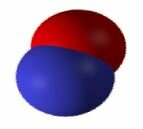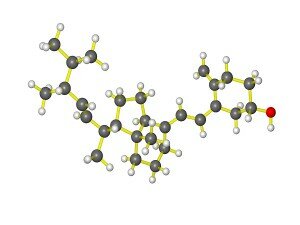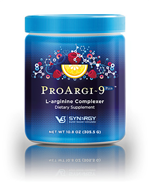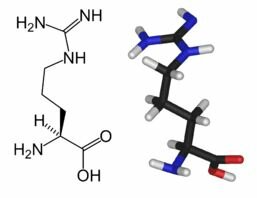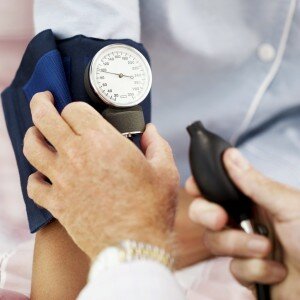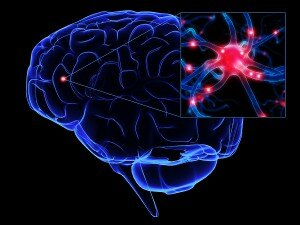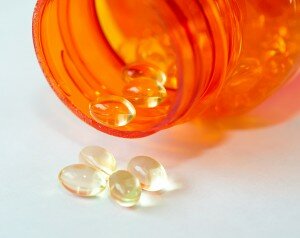The core of a good cardiovascular program is learning how to choose nitric oxide foods and supplements that will enhance your endothelium’s ability to create nitric oxide – the master signaling molecule of your entire cardiovascular system. Just in this first line I introduced you to several key physiological terms that will absolutely reduce your risk for heart disease if you know how to maximize the benefits of nitric oxide foods.
Let’s start with your endothelium. This organ is now considered to be the largest secreting organ in your body. Unfortunately, most people have never heard of it, yet your endothelium lines all of your cardiovascular system. The inside of your heart, arteries, and veins are all lined by this one-celled thick organ. Your capillaries are just extensions of your endothelium. Most vascular researchers today believe that your endothelium ultimately controls most of your cardiovascular system. And one of its functions is to take nitric oxide foods and convert them into nitric oxide.
Nitric oxide is your body’s most powerful vasodilator. This means that it relaxes the smooth muscle of your vascular wall to properly control your blood pressure. Nitric oxide is a short-lived gas that contains a single nitrogen and oxygen atom that, when combined together, act as a signaling molecule. A signaling molecule is used by your body to cause something else to occur. In addition to helping you maintain a normal blood pressure, your cardiovascular system uses nitric oxide to keep your blood platelet cells from sticking together to prevent strokes and heart attacks. Nitric oxide is also used to heal and repair damage to the endothelium.
But it doesn’t end there. Your nervous system uses nitric oxide as a neurotransmitter to transmit impulses between nerve cells. Your immune system uses nitric oxide to destroy infectious agents like bacteria, viruses, and tumors. In fact there is not a cell, tissue, or organ in your body that is not directly or indirectly impacted by nitric oxide. You could not live without it and the 1998 Nobel Prize in Medicine was awarded to three American researchers who discovered how the endothelium produces this life-saving and live-enhancing gas called nitric oxide.
Given this information wouldn’t it make sense to learn which nitric oxide foods will nourish your endothelium for improved nitric oxide production?
Nitric Oxide Foods – What Are They?
When we look at nitric oxide foods we’re looking for foods that contain the amino acids L-arginine and L-citrulline. Technically speaking your endothelium uses L-arginine to create nitric oxide. The reason why I include L-citrulline is because this amino acid will recycle L-arginine to turbo charge your production of nitric oxide. We’ll talk about this in just a little bit.
To help you better understand which foods are good nitric oxide foods I’ve created a popular YouTube video. Just click here to watch! For those who would prefer to read let me share the following information:
Most research indicates that for you to receive a therapeutic benefit from L-arginine you need to consume at least 5 grams of this amino acid at one time. So I selected 4 nitric oxide foods that I thought would be common food choices. I did the math conversions to look at how much of these nitric oxide foods you would need to eat to take in 5 grams of L-arginine. I also looked at the number of calories and grams of fat it would bring into your body. Peanuts provide the smallest quantity of food but they pack on 70 grams of fat and 918 calories. Beans, tuna, or chicken breasts are your better choices but you would need to consume at least:
- one can of beans or
- two cans of tuna or
- almost 1 pound of chicken to get a therapeutic benefit.
The other amino acid is L-citrulline. There is not much of a choice in nitric oxide foods for this amino acid. Watermelon is your one and only good food choice. Unfortunately, 60% of the L-citrulline is contained in the rind portion of the watermelon which most people never eat. You would have to eat over a pound of watermelon to get even close to the amount of L-citrulline your body would need for a therapeutic benefit.
When people realize all the food they need to eat, and the limited menu they have to choose from, they begin to ask the question:
Is it better to get these critical amino acids through nitric oxide foods or supplementation?
Comparing costs between nitric oxide foods and supplementation, your total daily food cost could range from $2.50 to $7.00 depending on whether it’s organic or processed food. Your supplement cost is usually around $2.00 or less.
So supplementation costs you less and doesn’t have the added concern of fat grams and calories to your diet. You just need to make sure you choose a good supplement company because the quality of the L-arginine and L-citrulline makes a huge difference. To help you better understand this please click on my YouTube video.
How Long Will Nitric Oxide Foods Provide a Benefit?
Now, I need to make one more important point about nitric oxide foods and supplements as it applies to these two amino acids.
When you bring in a therapeutic level of L-arginine, it typically results in a 30 minute to 2 hour window of improved nitric oxide production. When you combine your L-arginine with L-citrulline, you increase this therapeutic production of nitric oxide to 24 to 36 hours. This has huge health benefits in helping you to control your blood pressure and repairing the damage done to the endothelium.
This is so important that the 1998 Nobel Laureate Dr. Louis J. Ignarro had this to say in his 2005 bestseller NO More Heart Disease:
“Any supplement program that does not contain L-citrulline and antioxidants to augment the L-arginine – and most on the market do not – is missing out on a major piece of the potential of nitric oxide to improve your cardiovascular health.”
Learning how to properly nourish, heal, and support your endothelium through proper nitric oxide foods and supplements is a much more cost effective way in reducing the risk factors for cardiovascular disease. This is especially important for those who have high blood pressure. Since 33 percent of the American adult population has high blood pressure, and 25 percent are in the pre-hypertensive condition, choosing nitric oxide foods and supplements could be a tremendous health strategy for the prevention of heart disease.
Together we can work to save a million lives by teaching them the benefits of nitric oxide foods!
Dan Hammer
Dan Hammer has a background in biology, chemistry, and exercise physiology. He used to run one of the largest health club operations in the Chicago area and has been helping people with their wellness issues for more than 25 years.
The information contained in this article is for general information purposes only and never as a substitute for professional medical advice or medical exam. The information about nitric oxide foods has not been evaluated by the Food and Drug Administration and should not be used to diagnose, treat, cure or prevent any disease without the supervision of a qualified medical doctor.

